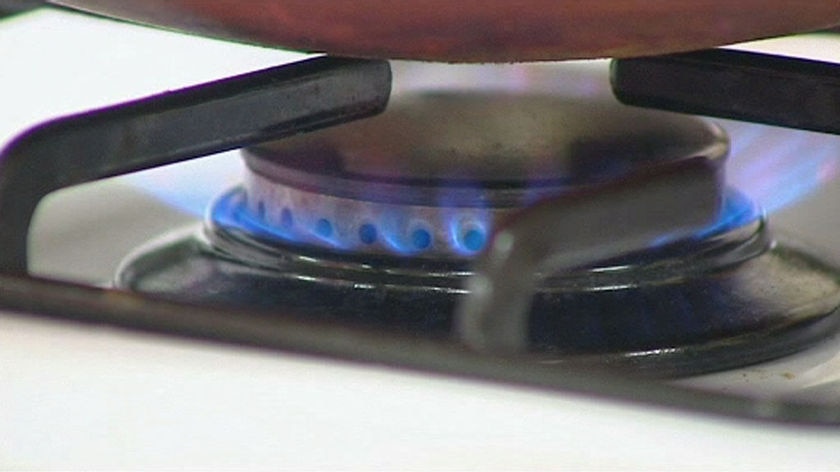- cross-posted to:
- [email protected]
- [email protected]
- cross-posted to:
- [email protected]
- [email protected]
Other states will follow suit, I think the ACT already requires new builds to be ‘gasless’, or, at least, they aren’t building the gas infrastructure into new suburbs.
I’d love to get rid of gas. I think an induction cooktop is possible and would be beneficial, but the hot water might be a bit more difficult. The daily connection fee is annoying so I’d like to cut it out entirely rather than just reduce it.
In new homes, they can be fitted with heat pump water heaters, or electric resistance. Heat pumps are fairly efficient, but need the house to be designed with that in mind. Electric is less so, but can use very small spaces and be retrofited as well.
In Australia, the climate is warm enough that installing a heat pump integrated into the top of the tank in a garage or outdoors is fine.
The biggest whinge is going to be giving up that little bit of space.
Gas hot water heaters tend to be a lot more efficient than gas cooktops. The flat bottom of most pots and pans means a lot of heat will escape up the sides, but hot water heaters can be designed with this in mind. On pots, I have one that basically has heatsink fins on the bottom to better capture the gas heat, but this is far from typical.
It would be interesting seeing what happens in NSW, given that their gas network has always been in private hands, with very little government involvement.
The only thing in my house that uses gas is the hot water heater. Down the line I’ll probably replace it with a solar heater, if it can be made smart enough to have the water warm when needed.
That problem was solved 20+ years ago. Typically you have an element halfway up the tank, so the electric heats the top half only, but the solar heats the full tank.
Ripple, timer, or remote control can shift electrical consumption to times of lower cost (overnight, mid-afternoon) while having negligible impact on quality. A big tank will stay hot for a few days easily.
I had one in a rental I lived at for a while until it broke, that one used an instant gas boiler behind the tank to heat up the water more. The system you describe would be better (but by smart, I meant it should also take into account when free solar power is available, and predict when we’re going to use hot water).
It depends on the utility pricing as to what’s best in that regard, but yes, solar diverters on conventional electric-only tanks are pretty common in NZ. It’s pretty rare to put both PV and solar hot water on the same house.
For people like me that don’t know Australia:
Victoria is a state in southeastern Australia. It is the second-smallest state, with a land area of 227,444 km2 (87,817 sq mi); the second-most-populated state (after New South Wales), with a population of over 6.7 million;[3] and the most densely populated state[9] in Australia (29 per km2). Vict
Question for locals: do you need gas connections?
Side question: do you have fireplaces, gas or otherwise?
Local here. You don’t need a gas connection if your house is all electric. A lot of new houses are all electric already, some bigger builders already do all electric.
Some houses have fireplaces both gas or actual fireplaces. I have a gas fireplace but I don’t use it as I have solar and electric heating so it’s much cheaper than running the gas heater.
I guess you don’t have a wok.
You can get a propane burner to use outside that has WAY more BTUs than anything on your cooktop. It’s how you’re supposed to cook on a wok to get that signature flavor. You can’t really do it on an indoor gas range. Also that amount of fumes would be toxic indoors.
I do, I have a gas cooktop. My previous house had induction so using a wok was very different though.
Question for locals: do you need gas connections?
Opinions on this are going to differ a lot.
I really like cooking on gas, but acknowledge it wastes a useful resource, is environmentally bad and potentially harmful to my families health.Side question: do you have fireplaces, gas or otherwise?
It’s becoming less common.
My last house, we had an internal combustion (wood) heater as the primary form of heating.
I know several people who have gas powered whole house ducted heating.
Both of these things are becoming prohibitively expensive to run compared to decent reverse cycle (heat pump) split systems.Like everything, there’s more layers than an onion to this.
Older houses had decent insulation as heating and cooling were hard.
Houses built from the 70s on have shit insulation, as running a heater or cooler year round were cheap and easy.Back in the 00s, the federal government tried to kill 2 bids with one stone here - stimulate the economy whilst improving the insulation of most houses through what became known as the “Pink Bats” program
This itself become massively controversial as the program was rorted to hell, and even some deaths, leading to a royal commision.The whole “ban new installs of gas” is a bit of a Green initiative, but it’s becoming more common across the country, starting with Australian Capital Territory, which banned it in June.
I’m curious about this as well. The climate there can easily support efficient electric heat sources (heat pump) in the cold season. Gas ranges/hobs are nice but induction is pretty good now.
I’ve just replaced a gas stove with induction. It’s far better than the gas stove was and I never want to go back.
Also replaced the gas water heater with a heat pump. The gas bill went way down, and the electricity bill didn’t go up.
Is the heat pump system continuous/unlimited, or tank-based? I have enjoyed the luxury of never running out of hot water on gas, but weighed against squandering a finite resource and/or destroying the planet it’s hardly a necessity for our two-person household.
As for cooking, I’ve heard nothing but good things about modern induction setups and a rapidly growing body of research highlighting the toxic byproducts of gas stoves/ovens - even when turned off - due to inevitable leaks from imperfect seals and aging equipment.
The last big argument for gas cooking seems to be wok burners, but I just did a quick google and not only is wok induction a thing now, but it looks sci-fi af so I’m here for it. They’re not cheap yet, but I imagine that’s only a matter of time as adoption picks up.
The heat pump uses a 315L tank. The heat pump only runs during the day, so we either have enough solar power to run it, or cheaper electricity at that time.
We have run out of hot water a few times, but with even minimal planning it’s not really a problem.
We decided to get a split heat pump and tank (rather than an integrated system) as they tend to be quieter and more efficient. It’s barely audible when standing next to it, and provides a great place to sit in summer.
Good to know, thanks! Renting atm so we’re stuck with whatever we have for now, but I’m keeping a list of nice-to-haves when we eventually buy our own place.
My weed vape uses induction, and it rips very nicely.
I’m in NZ, not Australia, but…
Gas connections are somewhat common, but by no means essential.
As most houses in Aus have Aircon and heading requirements are minimal, fitting reverse cycle (heat pump) units is easy, cheap, and efficient.
Most houses don’t use gas for cooking. Using electric/induction is easy.
Water heating is the only real ‘killer app’ gas has, because most houses don’t have the power for electric continuous flow. People will have to spare a little bit more space for a tank.
Heat pumps are great for heating in almost any climate it should be said. It’s only in places with extreme cold that a bit more thought and planning is needed.
I wish I didn’t have to rely on gas for heating. I just got a $600 bill for 2 months of ducted heating.
House is a rental, and the air con has no reverse cycle. The ducted heating also recently broke, and being a rental it was just changed over, as the landlord doesn’t need to worry about operating costs at all.
Depends what you mean by need. I have gas but just for cooking. Otherwise there’s just air-conditioning. Definitely more moderate winters than Canada though.
It’s also worth noting Victoria has limited amount of gas and is expected to run into shortages due to the limited pipeline capacity and LPG terminals
Since you mention Canada, I’d just like to let you know that in Québec (2nd-most populous province), more than 90% of homes are all-electric. I’ve never even lived in a house that had a gas connection, and in all my relatives I only know of one who does. And yes, that means we use electricity for heat in our -30°C winters.
It’s at the point where if somebody wants a gas range, they have to install a tank outside their home, because the gas network just isn’t there. It’s much cheaper to cook electric (and almost everybody does). The only common use for gas is for barbecues, and that’s almost always using 20-lbs propane tanks.
Natural gas is pretty common to have in homes in Victoria.
i do prefer gas over induction. I like to eat stir fry which requires wok-hei, which induction stove top would not offer.
depending on how often you do it you could buy a little butane stove from bunnings. We changed to induction and i’m in love with it, even tho i thought I would hate it. But yeah, I use the little camp stove for stirfrys and charring vegetables.
So stir fry does not work due to the pan shape?
You can’t get a wok hot enough across its entire surface to do actual stir-fry using electric or induction heating. What you end up with is a pitiful boil, not a stir-fry.
Thankfully they aren’t about to ban gas bottles and the problem is fairly easily solved.
Interesting, I had no idea.
I see a true blue Aussie
French here, we have the same kind of regulation since 2020 I believe.
Do you produce gas in Australia?
Here it’s all imported (and it was mostly from Russia before the Ukraine war) and we produce electricity mostly from nuclear plants so it’s easy to push gas out the homes.
We sell it to other country’s for less than what we sell it to ourselves, also sorry about the submarines.
For refereance:
Yeah, but its more valuable as an export than it is domestically.
Australia loves green initiatives locally but REALLY loves our trillion dollar coal and gas export industry.
It’s produced in Australia and mostly exported. Only Western Australia was smart enough to make sure they set some domestic production aside for domestic use instead of being forced to pay global prices. Everyone on the eastern seaboard had to swallow a spike in energy prices across the board when the Ukraine war started.
Shit loads of it, along with coal its a massive earner for export.
Our two major political parties have so much coal and gas money pumping into them that anything that may reduce the profitability doesn’t get far.
We don’t have gas at home but I think it’s stupidly expensive as a local consumer too.
Environmental issues aside, gas is also a pain for installation. Solid pipes are more difficult to route, and leaks are, of course, dangerous. Electricity is dangerous, but it is easier to contain. It doesn’t leak into the air, and because it’s a closed loop, we can measure if it isn’t all returning and shut it off (RCD/GFCI). It also has flexible cables. The downside is that, heat pumps require more maintenance. They’re a vaguely complicated mechanical system, as many fluid systems are.
deleted by creator
It’s just new builds, they’re not forcing people to get rid of their existing connections. It should be easy to phase in, and hopefully batteries and the like come down in price.
deleted by creator
It’s literally the title of this thread.
deleted by creator
Wait, how will this affect ScoMo’s gas led recovery?
Who?
Why natural gas isn’t considered green?
Because burning it (mostly methane) creates/releases greenhouse emissions such as CO2 and N2O.
And the gas itself leaks allover the distribution network, and is a more potent greenhouse gas than CO2.
Thank you.
Fun fact: ‘natural gas’ is a filthy greenwash corporate psiop.
Anything can be a gas naturally.
Nothing beats organic grain-fed coal.
I understand it as it’s not a byproduct of anything and it exists in this form in the nature
If you squint hard enough, theoretically any unnatural product could be heated to the point where it is in it’s natural gaseous state.
Removed by mod
Fucling idiots
Yeah trying to do something about the environment, - what fucking imbeciles, us geniuses go headfirst into extinction with pride!
I’d (genuinly) like to ask why natural gas isn’t considered green? Also, not one prediction says that humans are going to/might extinct and that is just a fact.
Because it’s not a renewable and it’s got polluting outputs from its use?
And it’s called hyperbole mate, don’t take everything so literally.
Massive amount of methane released during transport due to seepage. Doesn’t matter if it burns clean if you can’t fully contain it until you get it to it’s destination. Methane is a more potent greenhouse gas then co2, so the damage from leaks builds up quick.
Also, burning it in the home is toxic and gives kids asthma.
It’s not green because methane itself is a stronger greenhouse gas than carbon dioxide, and we don’t know how to build a distribution network that doesn’t leak like a sieve.
I’m sad about this because I prefer gas to other cooking heat (yes, I’ve tried induction), but ignoring reality because it doesn’t match my preferences is unwise.

















